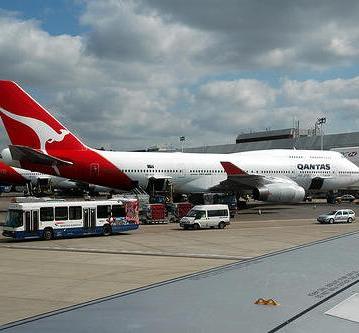
| NEWSROOM |
|
|
 |
|
|
|
|
|
|||
|
By Antonio Percy |
||||
 |
February 24, 2010 - The Australian parliament will soon vote on weather to add a new amendment to their Transport Security Act, known as the, “Aviation Transport Security Amendment Regulations.” Pilots and trade unions say if voted on in whole will only criminalize pilots and decrease air safety. Many believe the Aviation Transport Security Amendment Regulations offer some sound legislation. However, there are two provisions within the bill that pilots and trade unions find unacceptable. Under section 4.67E of the Aviation Transport Security Amendment Regulations, it would prevent licensed pilots from accessing a flight deck if they are not on a company list and transfer safety breaches of the cockpit from airlines to the pilots. In essence if the captain or other pilots fail to lock the cockpit door during flight, or an ineligible person enters and or remains in the cockpit during flight, the pilots would be in violation of the Aviation Transport Security Amendment Regulations under section 4.67E of the regulations if enacted. |
|||
|
Australian and
International Pilots Association (AIPA) President Captain Barry
Jackson said of most concern was the potential exclusion of licensed
company pilots from the list of people who could travel on the
flight deck of their company’s aircraft, as well as the shift of
criminal responsibility from the airlines to the pilot in command
for safety breaches.
“Shifting criminal responsibility to the pilot in command undermines a long held aviation principle that the airline is ultimately responsible for the actions of its pilots….. Any other approach risked allowing airlines to claim they were blameless for accidents and incidents,” Captain Barry Jackson said. The association had commissioned an independent risk specialist to investigation the regulation’s premise that pilots travelling in flight deck jump seats were a safety and security threat. “The results of this detailed, independent study clearly found that having an additional licensed pilot on the flight deck enhanced safety and security, which is hardly surprising, because if you can’t trust pilots on the flight deck, who can you trust,” Captain Barry Jackson said. |
||||
|
A review of
overseas aviation practices was conducted with pilot association
representatives from the
The review
revealed section 4.67E of the Aviation Transport Security Amendment
Regulations would be a significant departure from global safety
practices. That is, airlines have always been responsible for the
actions of their pilots. Having other pilots sit in the jump seat
weather on-duty or off-duty pilots or those suitable for entry into the
cockpit was appropriate. Data provided by pilots association here in the
Senator Xenophon ( “That is the not case. The fact is that, if the government wants to bring back a new regulation, if it wants to do so with the consent of the Senate, it can do so. It can fix this up by consulting with pilots and by consulting with the experts who know and with whom we entrust our safety." “However, if the new instrument is substantially different, as I believe it must be, it could be reintroduced immediately. My understanding of Senate procedure is that we can rescind this regulation and deal with it and not be fettered by the six-month rule in relation to it. I would support the government if it chose to bring back a suitable legislative instrument, and I also strongly urge my colleagues to support rescinding the six-month rule." |
| ©AvStop
Online Magazine
Contact
Us
Return To News
|
|